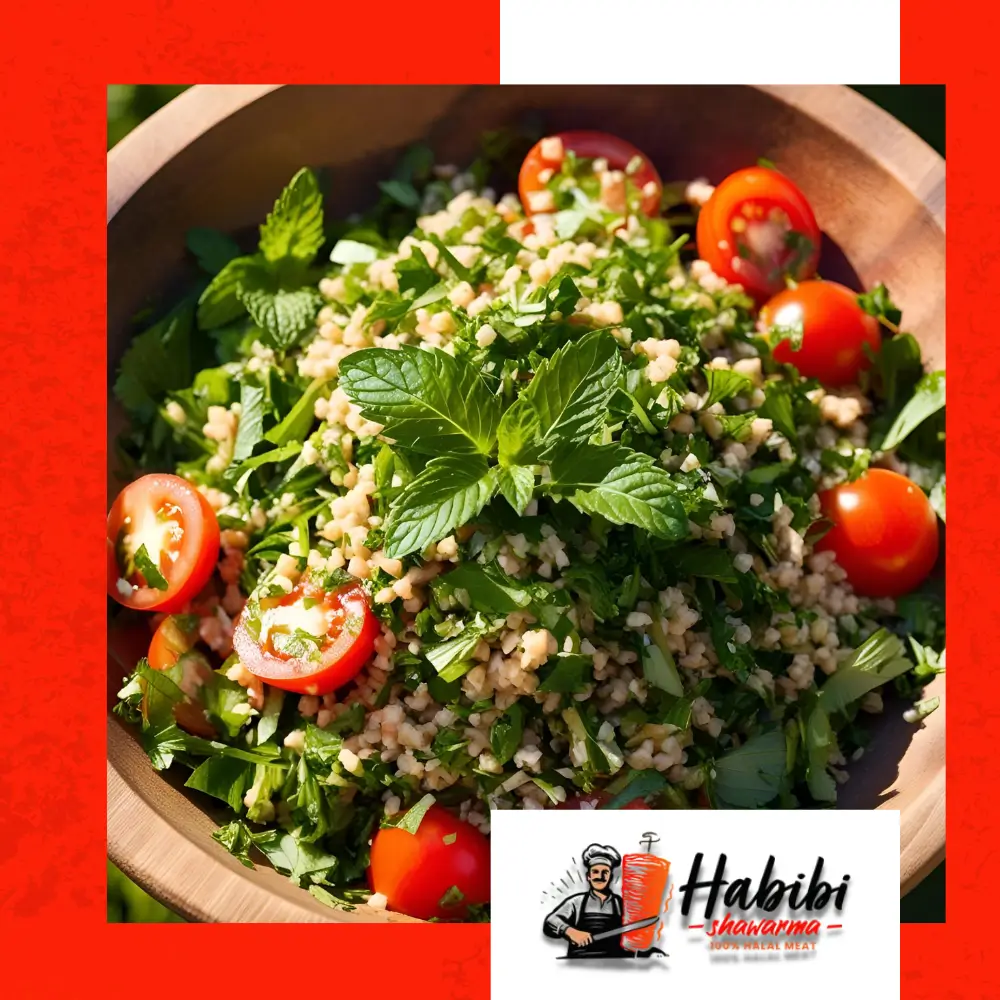Greek-Style Tabouli Salad Nutrition Guide: Everything You Need to Know
from web site

In a world of ever-changing food trends, some dishes stand the test of time—and Tabouli Salad is one of them. This classic Mediterranean favorite is not only fresh and flavorful but also packed with health-promoting nutrients. Whether you're adopting a cleaner lifestyle, exploring plant-based meals, or simply curious about what makes Greek-style Tabouli Salad so good for you, you're in the right place.
Let’s break down the full nutrition profile, ingredient benefits, and why this vibrant dish should have a permanent spot in your meal rotation.
What Is Greek-Style Tabouli Salad?
Tabouli Salad (also spelled tabbouleh) is a staple in Mediterranean and Middle Eastern cuisines. It’s traditionally made with:
-
Bulgur wheat (a quick-cooking whole grain)
-
Loads of fresh parsley and mint
-
Diced tomatoes and cucumber
-
Green onions
-
Lemon juice and extra virgin olive oil
While classic versions lean heavily on parsley, the Greek-style Tabouli often features a slightly grainier texture with a balanced ratio of bulgur to herbs, giving it a heartier bite.
Tabouli Salad: Basic Nutrition Facts
A typical 1-cup serving of traditional Greek-style Tabouli Salad (prepared with olive oil and bulgur wheat) contains approximately:
-
Calories: 180–220 kcal
-
Protein: 4–6 grams
-
Carbohydrates: 25–30 grams
-
Fiber: 4–6 grams
-
Fat: 8–10 grams (mostly from olive oil)
-
Sugar: 2–4 grams (from tomatoes and lemon juice)
This nutritional profile makes it a well-balanced, low-calorie and nutrient-dense dish that can support everything from weight management to heart health.
Key Ingredients and Their Health Benefits
1. Bulgur Wheat – Whole Grain Goodness
Bulgur is made from cracked whole wheat kernels, making it high in fiber, B vitamins, and complex carbohydrates. It helps regulate blood sugar, supports digestive health, and keeps you feeling full longer—perfect for those watching their weight or blood sugar levels.
Bonus: For gluten-free diets, swap bulgur with quinoa or cauliflower rice.
2. Parsley – Detoxifying and Nutrient-Packed
Don’t underestimate this leafy green. Parsley is rich in:
-
Vitamin K (crucial for bone and blood health)
-
Vitamin C (immune support)
-
Flavonoids and chlorophyll (natural detoxifiers)
Its anti-inflammatory and antioxidant properties make it more than just a garnish—it's the real star of the salad.
3. Olive Oil – Heart-Healthy Fats
As a core part of the Mediterranean diet, olive oil provides:
-
Monounsaturated fats
-
Anti-inflammatory compounds
-
Polyphenols that support heart and brain health
It also helps your body absorb fat-soluble vitamins like A, D, E, and K from the veggies and herbs in Tabouli.
4. Tomatoes & Cucumbers – Hydration + Antioxidants
These refreshing vegetables bring more than crunch. Tomatoes supply lycopene, an antioxidant linked to cancer prevention and skin protection. Cucumbers offer hydration and a small dose of minerals like potassium and magnesium, which help with electrolyte balance.
5. Lemon Juice – Vitamin C Booster
Lemon juice not only brightens flavor but also adds a healthy dose of vitamin C, promoting collagen production, immune function, and iron absorption from the rest of your meal.
Why Tabouli Salad Belongs in a Balanced Diet
Here’s how adding Tabouli Salad to your weekly meals can support your health:
✅ Promotes Digestive Health
High fiber from bulgur and vegetables supports gut function, reduces bloating, and promotes regularity.
✅ Supports Heart Health
Healthy fats, fiber, and antioxidants combine to lower bad cholesterol and reduce inflammation.
✅ Helps with Weight Management
Low in calories but high in volume and nutrients, Tabouli is filling without being heavy, making it ideal for calorie-conscious eaters.
✅ Plant-Based Protein Source
While not a complete protein, Tabouli provides a moderate protein boost, especially when combined with chickpeas or lentils.
✅ Versatile and Meal-Prep Friendly
It stores well in the fridge, tastes better the next day, and pairs well with proteins like grilled chicken, salmon, or falafel.
Customization Tips
Want to level up your Tabouli Salad? Try these ideas:
-
Add protein: Chickpeas, feta, or grilled shrimp
-
Make it gluten-free: Swap bulgur for quinoa
-
Spice it up: Add red pepper flakes or diced jalapeño
-
Serve creatively: In lettuce wraps, on toast, or over greens
Final Thoughts
Greek-style Tabouli Salad is more than just a refreshing side dish—it’s a nutrient-packed, flavor-rich staple that aligns with almost every healthy eating plan. Whether you're plant-based, Mediterranean-focused, or simply looking for a delicious way to eat more veggies and whole grains, Tabouli offers a well-rounded answer.
So next time you’re prepping meals for the week, don’t just reach for any salad—reach for Tabouli Salad, and let your taste buds and your body thank you.
